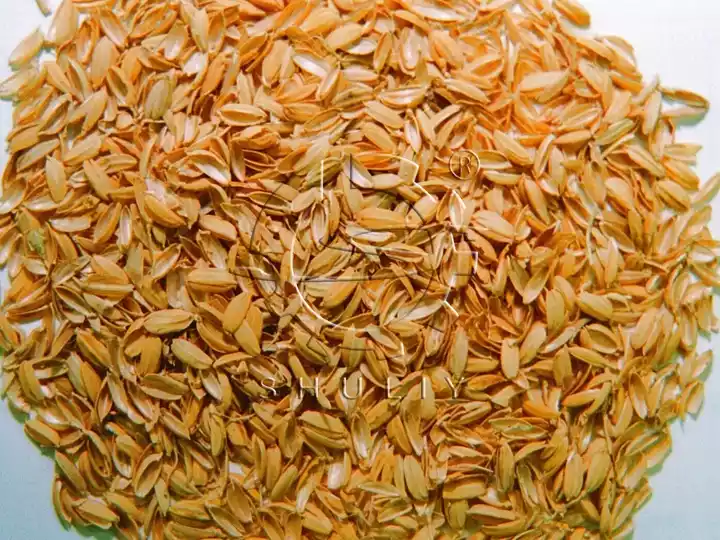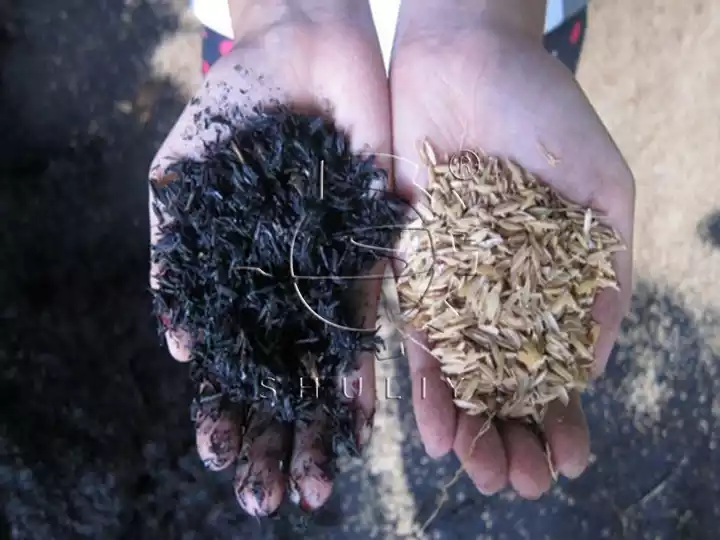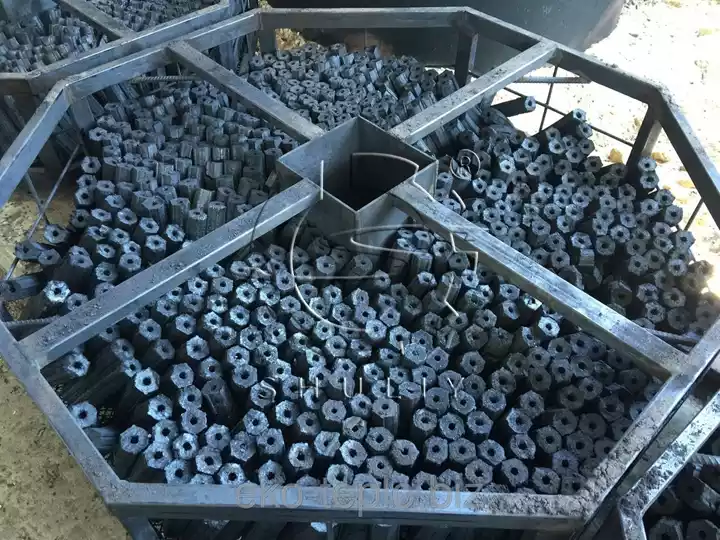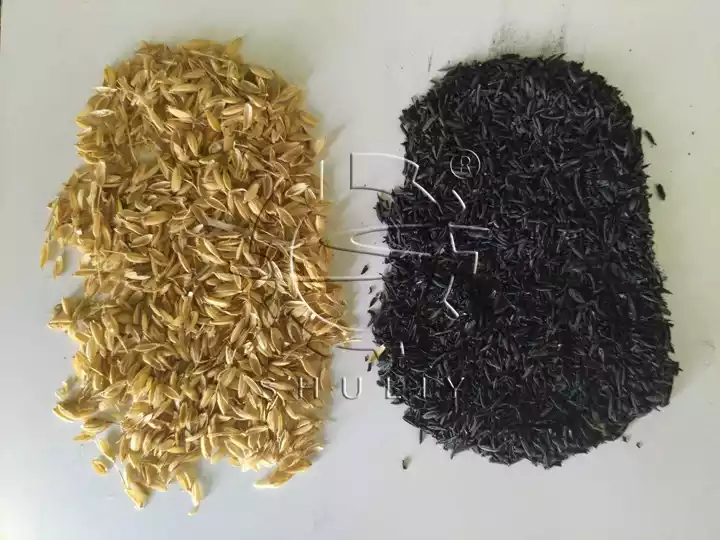The creative method of recycling rice husk as a fuel source not only minimizes waste but also harnesses the potential of rice husk, a widely available agricultural by-product, to create energy-efficient and eco-friendly fuels.
The potential of rice husk
Rice husk, or rice hulls, is the outer protective layer of rice grains. Traditionally viewed as a waste product, it is often thrown away in landfills or burned, contributing to air pollution.
However, it contains valuable components like cellulose, hemicellulose, and lignin, which make it a great option for fuel production.

Process of producing rice husk charcoal
The process of transforming rice hulls into fuel consists of several careful steps aimed at achieving the best efficiency and quality.
Collection and preparation
Rice hulls are gathered from the rice mill and readied for processing. This step includes cleaning the husks to eliminate any impurities and adjusting their moisture content to an ideal level for briquetting.
Next, The husks are then made into charcoal with the help of a charcoal carbonization furnace and then crushed to make charcoal powder.

Briquetting process
The prepared rice hull charcoal powder is then combined with a binder and fed into a charcoal briquette making machine, where it is compressed into a dense, uniform mass.
We provide a variety of molding machines, such as charcoal briquette extruder machines, BBQ charcoal ball press machines, and hookah charcoal tablet making machines. Each machine offers distinct features tailored to different production capacities and fuel needs.

Advantages of rice hull briquettes
- High energy density: the energy density of briquette is greater than that of loose rice husk, which leads to more efficient combustion and extended burning duration.
- Low pollution: burning rice hull briquettes results in lower emissions and less ash compared to coal, contributing to cleaner air and a reduced environmental footprint.
- Cost-effective: they serve as a cost-effective fuel alternative by utilizing waste materials and decreasing reliance on imported fossil fuels.
Market applications of rice hull charcoal
Rice hull briquettes are highly versatile and can be used in various applications:
- Residential use: they serve as an effective fuel for cooking, heating, and boiling water in homes.
- Industrial applications: briquettes are perfect for use in boilers, kilns, and other industrial heating processes.
- Power generation: they can also be utilized to generate electricity, helping to diversify energy sources.
By transforming agricultural waste into a valuable resource, we can cut down on pollution, save money, and help create a more sustainable future. The potential of rice husks as a fuel source will keep being discovered.

